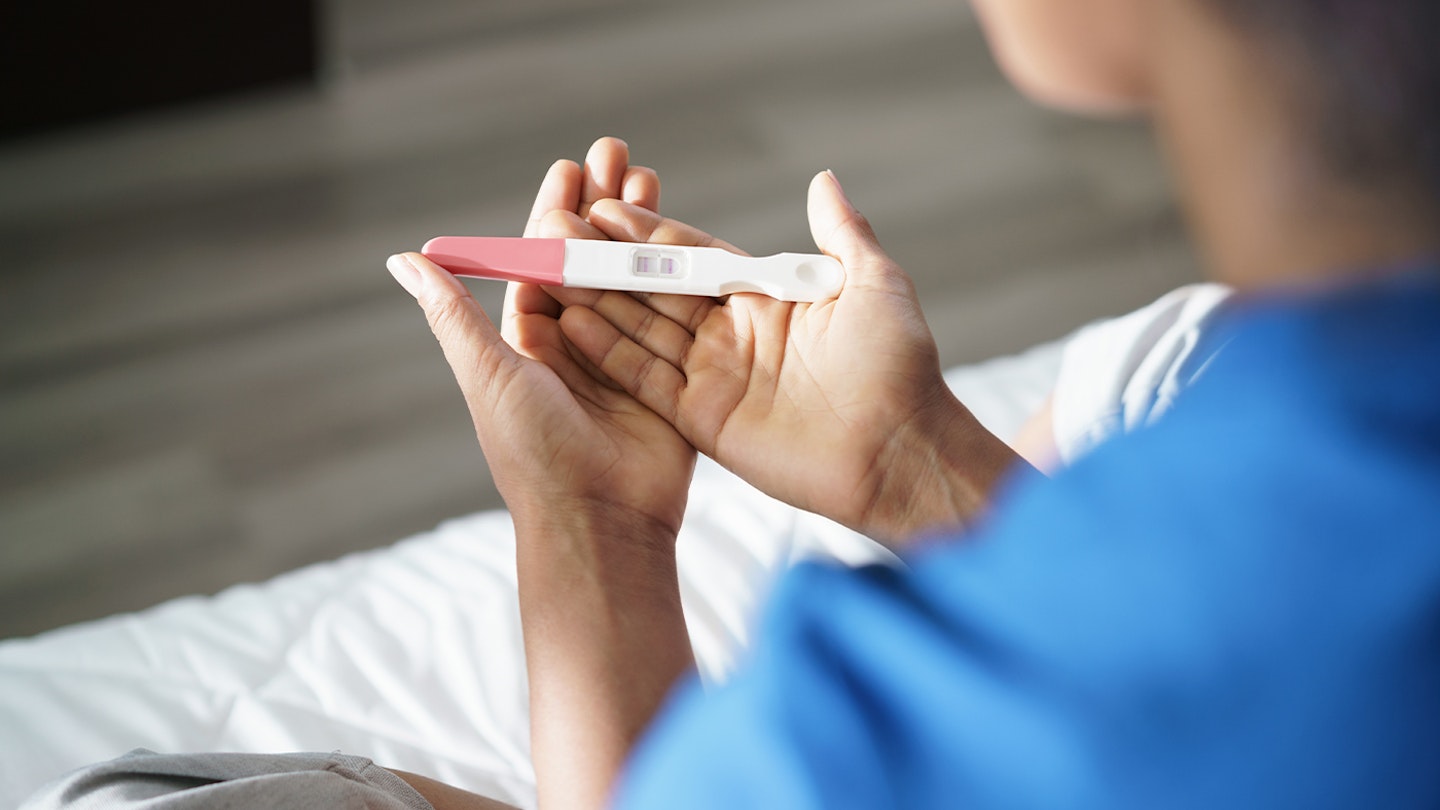We've all heard of false negative pregnancy tests, which can often be caused by taking a test too early, but have you ever experienced a false positive test? Although they're a lot rarer, it's important to be aware of the possible causes, as it could explain why your body is acting the way it is.
What are the possible causes of a false positive pregnancy test?
1. Chemical pregnancy
The first and most common reason for a false positive result is if you've experienced a chemical pregnancy. This happens when a fertilised egg (the embryo) is unable to implant itself in your uterus, causing it not to grow. It's thought that chemical pregnancies are quite common, but many women don't detect them.
There are a wide range of reasons a woman might experience a chemical pregnancy, but just remember, it's nothing you have done wrong. If you are concerned and want to find out what might be causing it, it might be a good idea to speak to your GP.
Read more about chemical pregnancies and the symptoms to be aware of.
2. Ectopic pregnancy
This happens when a fertilised egg gets stuck in the fallopian tube on its way to your uterus. In some cases, they can also occur in the cervix, ovary, or abdominal cavity. As the embryo has implanted, your body will still produce enough hCG to provide a positive result, but sadly, the embryo is unable to continue growing.
Ectopic pregnancies are very serious, and if left untreated, they can be extremely damaging, leading to extreme blood loss or loss of the reproductive organs.
Read more about ectopic pregnancies and the symptoms to be aware of.
3. Error
Although pregnancy tests tend to be reliable, if used incorrectly, false results can occur. This is why it's so important to make sure you read all of the instructions properly before carrying out your test, and taking a second test if you're unsure you haven't taken the test properly.
Read more on the best pregnancy tests in the UK and how to take them.
4. Medicines and health conditions
If you think you might have got a false positive result, it's worth checking with your GP to see if any health conditions you have or any medications you might be on may be causing a positive test result to show.
5. Recent miscarriage or abortion
If you've recently experienced baby loss or had an abortion, you may still get a false positive pregnancy test result, as the hCG hormone can remain in your blood and urine up to around 6 weeks after.
If you experienced a miscarriage and you continue to get a positive result, you may want to check with your doctor to make sure none of the tissue has been left behind, as it's important to get this removed.
You can find out more about pregnancy after miscarriage here.
6. Faint lines on the test
If you're pregnant, the pregnancy test will usually show two bright and clear lines. However, if the second line is faint, it may indicate early pregnancy or it might be an evaporation line. Often, an evaporation line is colourless.
An evaporation line is likely to appear after your urine has evaporated completely, which is why it's important to make sure you follow the instructions on how long to leave your test before checking it and disposing of it. Most cheaper pregnancy tests will display line results but if you have the budget to do so, you may want to opt for a digital pregnancy test so you are clear about the result.
